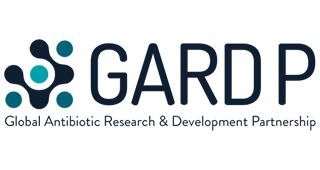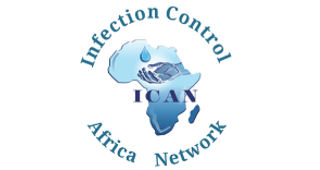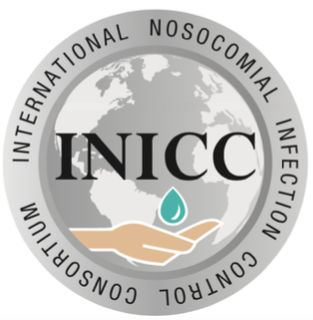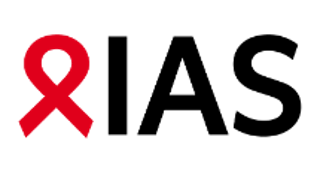 |
|
Maximum: 1 CME cr.,
1 AutoAttendance cr.
Sign in to view your progression
|
Activity Title: Emerging Infectious Diseases Preparedness – Looking Through the One Health Lens
Release Date: November 18, 2020
Estimated Time to Complete Activity: 70 minutes
Statement of Need:
Most high-impact emerging diseases are caused by zoonotic viruses. They emerge through a complex interaction of socio-economic and environmental drivers acting on contact networks among wildlife, livestock and people. Over the past 20 years EcoHealth Alliance has conducted field studies and ecological analyses to trace back the origins of specific diseases, estimate viral diversity in wildlife reservoirs, and identify the geographical regions and global changes most likely to produce pandemics. Using examples from Nipah virus, SARS coronavirus and others, I will show how understanding emerging disease ecology can provide answers to critical questions for emerging viruses, including:
- Where will the next emerging virus originate?
- What are the key causes of disease emergence?
- Which reservoir species will the next EID likely emerge from?
- How many unknown viruses do these species harbor, and how many can infect us?
- Can we predict and prevent emergence, and how much will it cost?
Reducing the risk of new emerging diseases is a key scientific challenge that will require global cooperation because novel viruses mainly originate in tropical regions, but have the highest economic impact on richer, rapidly developing countries in the North. Despite the exponential increase in EID threats, our work shows that cooperative strategies to combat these threats will provide significant return-on-investment as well as public health benefits.
Faculty:
Peter Daszak
Dr. Daszak is President of EcoHealth Alliance, a organization that conducts research and outreach programs on global health, conservation, and international development. Dr. Daszak is Chair of the US National Academy of Sciences Forum on Microbial Threats. He is a regular advisor to WHO, OIE and FAO. Dr. Daszak is on the Editorial Board of several scientific journals and authored over 300 scientific papers.
George F. Gao, DPhil (Oxon), MSc
Director-General, Chinese Center for Disease Control and Prevention (China CDC); Vice President, the National Natural Science Foundation of China (NSFC); Director and Professor, CAS Key Laboratory of Pathogenic Microbiology and Immunology, Institute of Microbiology, Chinese Academy of Sciences; Dean, Medical School, University of Chinese Academy of Sciences
Kanta Kumari Rigaud is a Lead Environmental Specialist and Regional Climate Change Coordinator in the Africa Region of the World Bank Group. She has a doctorate from the University of East Anglia in the United Kingdom.
Technical Requirements
This site and its activities are best viewed using the latest versions of the Chrome, Edge, Firefox and Safari browsers. For interactive content a broadband connection is required. For CME/CE activities featuring audio you need a sound card and speakers.
Our activities may require JavaScript to be enabled on your computer. If you are having difficulty viewing pop-up windows, click here for instructions on enabling JavaScript.
Contact Information
If you have questions about this CME activity, please contact The International Society for Infectious Diseases at info@isid.org.
For technical support issues, please contact Multilearning at support@multilearning.com
Upon completion of this module, participants should be able to:
- Understand how emerging disease ecology can provide answers to critical questions for emerging viruses
- Discuss the need for global cooperation to reduce the risk of new emerging diseases because novel viruses mainly originate in tropical regions, but have the highest economic impact on richer, rapidly developing countries in the North
- Discuss how cooperative strategies to combat EID threats will provide significant return-on-investment as well as public health benefits
- Describe how climate change is a potent driver of migration
- Discuss how trends, alongside the emergence of “hotspots” of climate in- and climate out-migration, will have major implications for climate-sensitive sectors and for the adequacy of urban infrastructure and social support systems, including health systems
- Explain how climate change affects the health and safety of persons directly through factors such as heat stress, water-borne diseases, malnutrition and stunting
- Understand the need for urgent and concrete climate and development focused action.
The target audience for this module is physicians, nurses, public health officials, researchers, immunization officers, and other health professionals.
Grange ZL, Goldstein T, Johnson CK, et al. Expert Panel; PREDICT Consortium. Ranking the risk of animal-to-human spillover for newly discovered viruses. Proc Natl Acad Sci U S A. 2021 Apr 13;118(15):e2002324118. doi: 10.1073/pnas.2002324118.
https://pubmed.ncbi.nlm.nih.gov/33822740/
Jones KE, Patel NG, Levy MA, Storeygard A, Balk D, Gittleman JL, Daszak P. Global trends in emerging infectious diseases. Nature. 2008 Feb 21;451(7181):990-3. doi: 10.1038/nature06536. PMID: 18288193; PMCID: PMC5960580.
https://www.ncbi.nlm.nih.gov/pmc/articles/PMC5960580/
Wang C, Horby PW, Hayden FG, Gao GF. A novel coronavirus outbreak of global health concern. Lancet. 2020 Feb 15;395(10223):470-473. doi: 10.1016/S0140-6736(20)30185-9. Epub 2020 Jan 24. Erratum in: Lancet. 2020 Jan 29;: https://pubmed.ncbi.nlm.nih.gov/31986257/
Wang L, Su S, Bi Y, Wong G, Gao GF. Bat-Origin Coronaviruses Expand Their Host Range to Pigs. Trends Microbiol. 2018 Jun;26(6):466-470. doi: 10.1016/j.tim.2018.03.001. Epub 2018 Apr 18. PMID: 29680361; PMCID: PMC7119057. https://pubmed.ncbi.nlm.nih.gov/29680361/
McFarlane RA, Sleigh AC, McMichael AJ. Land-use change and emerging infectious disease on an island continent. Int J Environ Res Public Health. 2013 Jun 28;10(7):2699-719. doi: 10.3390/ijerph10072699..
https://www.ncbi.nlm.nih.gov/pmc/articles/PMC3734451/
Epstein PR. Climate change and emerging infectious diseases. Microbes Infect. 2001 Jul;3(9):747-54. doi: 10.1016/s1286-4579(01)01429-0. PMID: 11489423.
https://pubmed.ncbi.nlm.nih.gov/11489423/
Disclosure Policy
In accordance with the EACCME Standards for Commercial Support, the International Society for Infectious Diseases (ISID) requires that individuals in a position to control the content of an educational activity disclose all relevant financial relationships with any commercial interest. ISID resolves all conflicts of interest to ensure independence, objectivity, balance, and scientific rigor in all our educational programs. Furthermore, ISID seeks to verify that all scientific research referred to, reported, or used in a CME/CE activity conforms to the generally accepted standards of experimental design, data collection, and analysis. ISID is committed to providing learners with high-quality CME/CE activities that promote improvements in health care and not those of a commercial interest.
Activity Staff Disclosures:
The planners, reviewers, editors, staff, or other members at the International Society for Infectious Diseases who control content have no relevant financial relationships to disclose.
ISID Knowledge Exchange and E-Learning Platform Organizing Committee members are listed here along with Committee members’ disclosure forms.
Faculty Disclosures:
Prof. Peter Daszak and Dr. Kanta Kumari Rigaud have no actual or potential conflict of interest in relation to this program/presentation
Dr. George Fu Gao:
Affiliation/Financial Interest: Patent Holder - ZF2001 Recombinant COVID-19 Vaccine
Name of Commercial Company: Chongqing Zhifei Biological Products Co, Ltd.
Moderator Disclosures:
Larry Madoff and Salma Ferchichi have no actual or potential conflict of interest in relation to this program/presentation.
Disclosure of Unlabeled Use
The International Society for Infectious Diseases requires CME faculty (speakers) to disclose when products or procedures being discussed are off label, unlabeled, experimental, and/or investigational, and any limitations on the information that is presented, such as data that are preliminary, or that represent ongoing research, interim analyses, and/or unsupported opinion. Faculty in this activity may discuss information about pharmaceutical agents that is outside of US Food and Drug Administration approved labeling. This information is intended solely for continuing medical education and is not intended to promote off-label use of these medications. ISID does not recommend the use of any agent outside of the labeled indications. If you have questions, contact the Medical Affairs Department of the manufacturer for the most recent prescribing information.
Disclaimer
The International Society for Infectious Diseases presents this information for educational purposes only. The content is provided solely by faculty who have been selected because of recognized expertise in their field. Participants have the professional responsibility to ensure that products are prescribed and used appropriately on the basis of their own clinical judgment and accepted standards of care. The International Society for Infectious Diseases, and the former commercial supporter assume no liability for the information herein.
Copyright Information
Copyright © 2021 by the International Society for Infectious Diseases. Any unauthorized use of any materials on the site may violate copyright, trademark, and other laws. You may view, copy, and download information or software ("Materials") found on the Site subject to the following terms, conditions, and exceptions:
• The materials are to be used solely for personal, noncommercial, informational and educational purposes. The materials are not to be modified. They are to be distributed in the format provided with the source clearly identified. The copyright information or other proprietary notices may not be removed, changed, or altered.
• Materials may not be published, uploaded, posted, transmitted (other than as set forth herein), without the International Society for Infectious Diseases' prior written permission.
Privacy Policy
The International Society for Infectious Diseases protects the privacy of personal and other information regarding participants and educational collaborators. The International Society for Infectious Diseases will not release personally identifiable information to a third party without the individual's consent, except such information as is required for reporting purposes to the ACCME.
The International Society for Infectious Diseases maintains physical, electronic, and procedural safeguards that comply with federal regulations to protect against the loss, misuse, or alteration of information that we have collected from you.
Additional information regarding the International Society for Infectious Diseases Privacy Policy and ISID’s Knowledge Exchange and E-Learning Platform Privacy Policy can be viewed at https://isid.org/privacy-policy/ and https://exchange.isid.org/isid/legal/terms-and-conditions.
|
ACCREDITED ACTIVITY
Emerging Infectious Diseases Preparedness – Looking Through the One Health Lens
|
|







